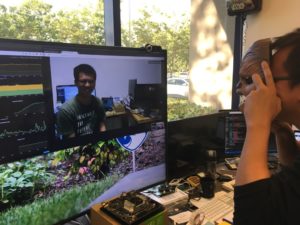A Co-Founder’s Tech Journey from Taiwan to Silicon Valley
Q & A with Co-Founder, Winston Chen
Tell me briefly about your startup background and experience.
I was a startup engineer and cofounder of a software startup in Taiwan focused on providing consumer insurance information. While I had raised seed funding for this venture, the funding environment there at the time was quite barren. To keep bootstrapping my startup, I took on consulting for Fliptop in 2011–a Silicon Valley startup tackling online recruiting. They asked me to work for them in San Francisco, and this is how I began my journey in Silicon Valley and eventually made it my home. I ended up being Fliptop’s first engineering hire in SF besides the VP of Engineering. The rest of the engineering team was in Taipei, since one of the founders was a Taiwanese immigrant to the US, and had connections there. I held a wide range of responsibilities–from customer success to platform engineering to debugging. Because I worked closely with the Taiwan team, 14-hour days were the norm. I’d work the day in California, do a hand-off to Taiwan, and continue to work a second day. They were eventually acquired by LinkedIn in 2015.
How is startup life in Silicon Valley different from Taiwan?
Fliptop was my first US-based company experience. I was so transfixed by the cultural gaps between working in Taiwan and San Francisco, that I decided to blog about this online. In particular, I was struck by the notable differences in organizational structure (hierarchical vs. flat), personal communication style (constrained vs. expressive) and management style (metrics-based vs. experience-based). Public interest in my blog grew to the point where I had 5,000 followers in 12 months. An editor approached me and asked me to write a book. This got published. The net effect of all this was that I suddenly gained recognition and publicity in Taiwanese tech communities. I didn’t know it at the time, but this stroke of luck would be key to acquiring talent and establishing work-related connections for future endeavors.
How has your work at startups helped to hone your AI expertise?
After working at Fliptop–which used machine learning to pick out the most likely deals among sales leads–I consciously decided to pursue startups that would push me to expand my AI expertise.
In 2015, I was working at Quid, which uses machine learning to ingest data from up to 3,000 articles to find patterns and commonalities, then communicates this through an interactive UI for businesses. There, I worked on infrastructure, formulating and implementing the service operation monitoring system. At Banjo, which uses AI and machine learning to filter ongoing events from social media live streams, I focused on platform engineering, designing and maintaining platform data pipeline web services.
The breadth of experience I gained at these startups contribute to what I’m working on today. Startups have always been my ideal work environment, because you get to build your experience and know-how, and you never get comfortable and lazy doing the same thing. As a co-founder, I think it’s imperative to know something about everything, and to be able to learn everything within a short period of time.
How did you meet Deep Sentinel founder David Selinger (Selly) and when did you realize that Deep Sentinel was a good fit?

Deep Sentinel Founders David Selinger and Winston Chen, at the company’s first movie night…with just the two of them
When I realized that I was in danger of growing bored at Banjo, I knew it was time for my next adventure. Some founders had approached me on AngelList, but I had also reached out to early start-up teams. I saw Selly’s post about starting a LinkedIn group on Deep Learning and reached out to him. When he described the idea behind Deep Sentinel to me, I grew very interested, since I had toyed around with home security at one point doing something similar with my old iPhones. When I spoke with Selly about this project, he thought it was pretty cool. He invited me over to do some code jamming. We worked on one project for several hours, and afterwards, decided that we were a pretty good fit. That was over a year ago, in August 2016.
What’s your role at Deep Sentinel today?
As the co-founder at Deep Sentinel, I like to have my hands in a little bit of everything. I lead our software engineering team across the bay area and Taiwan, as we build up our mobile, web, and embedded products. A key part of my team-building efforts include fostering and maintaining a sense of shared culture.
Communication is paramount. Our team in California moves quickly, and can sometimes take productivity for granted. One of our Taiwanese engineers was hired from California, and the first time he sat, in-person with the rest of the team in California, our productivity more than doubled. We closed all our open tickets. I realized then that we had to double-down on inter-office communication. So now, I work until midnight to communicate all tickets and answer questions. Then, when California is offline, our Taiwan team has quiet time to focus on what they’re doing.

Open communication lines means having a 24-hour live stream between the Taipei and Pleasanton offices. Naturally, this leads to some light-hearted moments in the day, too.
I’m also working on encouraging the team to speak out, and be willing to have confrontations or arguments, which requires some undoing on the cultural side.
Our CMO has also held regular meetings with our Taiwan team on identity, design and naming, to keep them in the loop. On subjective topics such as naming, they’ve been eager and comfortable voicing their opinions. We’re optimistic about building a shared culture from the get-go, and have had the chance to reinforce this with frequent trips to Taiwan by our CEO, our hardware engineering lead, and myself.